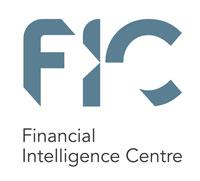Entities or persons that administer trust property as a regular feature of their business are required to register with the Financial Intelligence Centre (FIC) as accountable institutions.
These entities may include a board of executors, a trust company or any other person who, as a regular feature of his or her business, invests, keeps in safe custody, controls or administers trust property within the meaning of the Trust Property Control Act, 1998 (Act 57 of 1988) (Trust Act). However, a person who occasionally administers a trust or does so in his or her personal capacity should not register as an accountable institution.
The Financial Intelligence Centre Act, 2001 (Act 38 of 2001) (FIC Act) requires accountable institutions to fulfil compliance obligations which assist in identifying the proceeds of crime and combating money laundering and terrorist financing. Among these obligations are customer due diligence, record-keeping, establishing a compliance function, developing and implementing a risk management and compliance programme (RMCP), training employees on FIC Act compliance and their RMCP and registering with and submitting various reports to the FIC. Collectively, these measures are geared to assist in maintaining the integrity of South Africa’s financial system.
A lack of adequate anti-money laundering and combatting the financing of terrorism controls leaves accountable institutions vulnerable. Trust company service providers are often abused by criminals who seek to establish legal entities with the sole purpose of using that legal entity as a vehicle to launder illicit funds. It is therefore vital that trust company service providers remain compliant with their FIC Act obligations and remains vigilant to the risk of money laundering and terrorist financing.
Trust company services providers must understand the nature of their client’s business, the ‘warm body’ behind ownership of the client’s business, their source of funds and the reasons for the client seeking the accountable institution’s services.
The accountable institution has an obligation to determine whether its client is a domestic prominent influential person or a foreign prominent public official, as this may impact the level of risk of money laundering and/or terrorist financing when dealing with such clients. Refer to schedule 3A and 3B to the FIC Act, for a list of domestic prominent influential person and foreign prominent public official respectively.
Client information must be scrutinised to ensure that the accountable institution is not dealing with any person that is listed on the targeted financial sanctions lists as envisaged in the South African sanctions regime.
Where the accountable institution identifies any suspicious and unusual transactions or activity, it must report that transaction and/or activity to the FIC. This report is referred to as a suspicious and unusual transaction report in terms of section 29 of the FIC Act. There are, however, other types of reports which must be reported to the FIC as well, which includes cash threshold reports, and terrorist property reports.
The FIC assesses, analyses and interprets the information it receives from accountable and reporting institutions, with a view to preparing financial intelligence reports. In turn, the financial intelligence reports are disseminated to investigative authorities, law enforcement agencies, and other competent authorities for their investigations and applications for asset forfeiture.
 The FIC publishes guidance notes and public compliance communications that provides guidance to trust company service providers on how to comply with the FIC Act requirements.
The FIC publishes guidance notes and public compliance communications that provides guidance to trust company service providers on how to comply with the FIC Act requirements.
Refer to the FIC website at www.fic.gov.za for the latest publications of guidance notes and public compliance communications.




